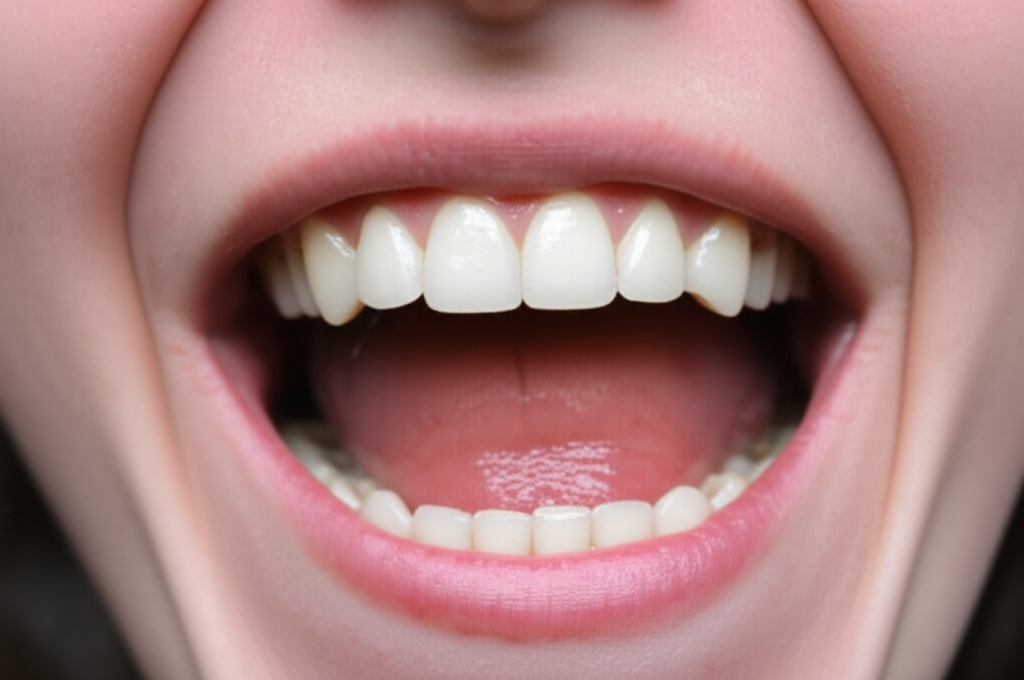
Does Sjogren’s Syndrome Cause Dental Problems? My Journey to Understanding and Managing Oral Health
By someone who’s lived it—and wants to help you navigate it, too.
Introduction: My Story With Sjogren’s and Dental Health
When I first found out I had Sjogren’s Syndrome, I thought I’d be dealing mostly with aching joints and tiredness. But the thing that really surprised me? All the sneaky, stubborn dental problems.
I’d wake up with a dry mouth, teeth that felt dirty, and gums that bled way too easily. For a long time, I kept asking myself—was this normal, or was something going on with my body that I should pay attention to?
If you’re reading this, you might be in the same spot. Maybe your dentist is worried. Or you keep getting cavities, even when you brush and floss all the time. You might be wondering: does Sjogren’s really cause all these teeth and gum problems?
From what I’ve lived, the answer is yes. But that doesn’t mean you can’t do anything about it. Let me show you what I’ve learned, what research says, and what you can do—starting today.
Table of Contents
- How Sjogren’s Disrupts Saliva and Why It Matters
- Dental Problems Sjogren’s Can Cause (And I’ve Faced Some!)
- Cavities and Tooth Decay
- Gum Disease and Periodontal Challenges
- Oral Thrush and Other Annoying Issues
- Everyday Struggles: From Cracked Lips to Losing Teeth
- My Best Dental Care Strategies for Living With Sjogren’s
- Oral Hygiene: The Unskippable Routine
- Beating Dry Mouth (Xerostomia)
- Fluoride, Diet, and Life Hacks
- Extra Care at the Dentist’s Office
- Working With Doctors and Dentists: Making Teamwork Work for You
- How Data, Science, and Real Experience All Back This Up
- What I’ve Learned (And What You Can Do Next)
How Sjogren’s Disrupts Saliva and Why It Matters
Before I got Sjogren’s, I honestly never thought about saliva. It just “happened.” Then, suddenly—my mouth was dry all day, every day.
So, what’s causing this? Sjogren’s Syndrome is an autoimmune disease. That means my own immune system wrongly attacked my spit glands (doctors call them parotid, submandibular, and sublingual glands). Because of this, they stopped making enough spit, and that’s called dry mouth or xerostomia.
I was shocked by how much my mouth needed spit for things like:
- Getting rid of food bits after eating or snacking
- Balancing out acids from things like coffee, juice, or sweets
- Helping me taste and swallow food
- Fixing tiny bits of tooth damage (saliva brings in helpful minerals)
- Fighting off germs and fungi (wish I knew that sooner!)
Losing saliva made it super easy for lots of mouth problems to start.
Dental Problems Sjogren’s Can Cause (And I’ve Faced Some!)
Cavities and Tooth Decay
When my dentist told me I had a bunch of new cavities, especially near my gums, I felt terrible. “But I brush and floss every day!” I said. The problem? With less spit, food and germs don’t get washed away, and my teeth don’t get the help they need to repair themselves.
Within six months of my mouth feeling dry, getting cavities went from being rare to happening all the time. For people with Sjogren’s, the mix of too much acid and too many germs messes up your teeth—especially near the roots where the gums go down.
If this is happening to you, just remember: it’s not your fault. Losing spit gives bacteria the upper hand.
#### Quick Fact
- Up to 90% of Sjogren’s patients get really bad tooth decay.
- Cavities along the roots of teeth go way up because gums also pull back.
Wondering why your fillings don’t last? Now you know.
Gum Disease and Periodontal Challenges
I used to get through dental cleanings without any problems. After Sjogren’s, there was more sticky plaque and tartar showing up. With less spit, there’s no natural rinse, so bacteria stick around under the gums.
My gums turned red, got puffy, and bled when I flossed. I learned that this can go from mild gum trouble to serious disease where your teeth can even get loose.
Now, my dentist and I watch closely for:
- Red or swollen gums
- Spaces forming between teeth and gums
- Bone loss on X-rays
I go for dental cleanings way more often now.
Oral Thrush and Other Annoying Issues
About a year after I was diagnosed, I woke up with a burning tongue and white spots. It was mouth yeast, also called thrush.
Since I had less spit to defend my mouth, the Candida fungus moved in and grew. For me, it hurt, food didn’t taste right, and talking was hard.
Other common problems I get:
- Split lips and sore corners of the mouth (especially when it’s cold out)
- Burning feeling in my mouth
- Bad breath, even after brushing or chewing gum
- Sores in my mouth that just wouldn’t heal
Even my dentures (when I wear them) got loose and uncomfy—dryness makes everything harder.
Everyday Struggles: From Cracked Lips to Losing Teeth
Maybe your lips are splitting more, or eating dry foods like bread feels like eating sandpaper. Sometimes it’s even tough to swallow pills, just because my mouth is so dry.
Some friends with Sjogren’s have lost teeth—not because they don’t take care of them, but because teeth decayed really fast or gums pulled back too much.
Teeth can also get way more sensitive, especially to cold water or hot drinks. And of course, the embarrassment of having bad breath that you can’t seem to fix.
It’s a rough journey, but there are ways to fight back. Here are the things that help me most.
My Best Dental Care Strategies for Living With Sjogren’s
Oral Hygiene: The Unskippable Routine
First thing I learned? Brushing and flossing is a must, no skipping. I use a soft-bristled toothbrush twice a day, plus floss every single day—no exceptions.
My dentist switched me to a prescription fluoride toothpaste (stronger than store ones) after seeing early signs of tooth root decay. It really helped.
Tips that work for me:
- Try an electric toothbrush. It’s nicer for sore gums.
- Use fluoride mouth rinse at night (ask your dentist if this is good for you).
- Never go to bed without brushing—nighttime is when your mouth is driest and most at risk.
Be gentle—not rough—so you don’t hurt gums.
Beating Dry Mouth (Xerostomia)
Taking care of dry mouth is a full-time job. Here’s what I’ve found helps:
- Carry water with you always. Take small sips a lot, even if you’re not thirsty.
- Chew sugar-free gum or suck on sugarless hard candies, like mints or fruit flavors. This gets your spit going, if you have any left.
- Try over-the-counter spit substitutes—there are sprays and gels that can help, even if just for a bit (like before meals or bedtime).
- Ask your doctor about medicines like pilocarpine or cevimeline. They can make your glands work a bit better.
- Use a humidifier at night. I know it sounds strange, but I sleep better when the air isn’t so dry.
Skip any mouthwash with alcohol—they just make your mouth drier.
Fluoride, Diet, and Life Hacks
Some days, prevention is my best friend. Here’s what I do:
- Professional fluoride treatments at every dental visit—my dentist brushes on a special coating.
- Eat or drink less sugar and acid. Soda, candy, sports drinks, and even fruit juice make things worse.
- Snack with meals instead of alone. Fewer acid attacks for your teeth that way.
- Drink less caffeine and alcohol—they dry your mouth even more.
- Stay hydrated. Water is your best help.
I also stay away from sticky foods like dried fruit or chewy candy, since they really cling to teeth and let bacteria grow.
Extra Care at the Dentist’s Office
I see my dentist every 3-4 months, not just twice a year. Gentle, regular cleanings help stop plaque and tartar from building up.
Here’s how I get the most from each dental visit:
- I always tell my dentist I have Sjogren’s. They can give me special care.
- I ask about dental sealants and extra fluoride. Not just for kids—adults with Sjogren’s need them too.
- If I need dental work, my team works to save as much of the real tooth as they can.
(Pro tip: If you need dental work like crowns or bridges, a good crown and bridge lab that knows about tough cases can make things better. Ask your dentist about which labs they use!)
If you wear dentures or partials, keep seeing your dentist regularly! Dentures can rub and hurt more when your mouth is dry.
Working With Doctors and Dentists: Making Teamwork Work for You
I learned right away that I needed a team: my dentist, my rheumatologist, and sometimes an oral medicine specialist too.
Here’s what works for me:
- I tell all my doctors every single symptom— not just the ones they expect to hear.
- If my mouth gets really sore, I see new sores, or things change quickly, I let my team know right away. Acting fast makes things better in the long run.
- They can send me to a gum doctor (periodontist) for tough gum problems, or to an oral surgeon if teeth can’t be saved anymore.
Teeth health is about your whole body. Telling your doctors everything means you get help sooner and have fewer dental emergencies.
How Data, Science, and Real Experience All Back This Up
Wondering if you’re making this up? Here’s what the numbers show:
- Almost every person with Sjogren’s (up to 100%) has dry mouth. That’s just how the disease works.
- Tooth decay is super common: up to 9 out of 10 get bad cavities, especially at the tooth roots.
- Gum disease hits up to 70%, leading to bone loss and sometimes losing teeth.
- Oral thrush (mouth fungus)? As many as 60% will fight it sooner or later.
One study showed that people who brushed with prescription fluoride toothpaste, had more cleanings, and used spit substitutes had 45% fewer new cavities and 25% better gums than those using just regular care.
Real people, real proof. That matches what I’ve seen in myself and in others too.
Want more info about dental problems from dry mouth and other issues? Check dental diseases for more help.
What I’ve Learned (And What You Can Do Next)
Having Sjogren’s has turned me into a dental care fighter. Here’s what I know for sure:
- Sjogren’s really does cause dental problems, often fast and worse than you might think.
- If you understand why this is happening, you’re already closer to fixing things.
- Special dental care, made just for you, is the only way. Don’t be hard on yourself if things go wrong.
- Seeing your dentist often, and talking honestly with your care team, makes the rough road smoother.
- There’s no magic fix (what works for someone else might not work for you), but you’re not doing this all alone. With some help, you can keep your teeth and smile—even with Sjogren’s.
If you’re feeling tired or worried, I get it—I’ve gone through that too. But every step you take counts. Just start small, celebrate your wins, and keep asking questions.
And if you want more mouth health tips, including what your teeth and gums mean for your whole health, visit teeth information or look at more dental care guides.
Your mouth is worth protecting—Sjogren’s or not. And sometimes, learning just one new thing can really make a difference.
Takeaway: Yes, Sjogren’s can cause dental problems. But if you have the facts, use smart dental habits, and work with good doctors and dentists, you can still take care of your mouth and live well. If you’re having a hard time, don’t wait—call a dentist, make an appointment, and start taking care of yourself. You’ve got this!








